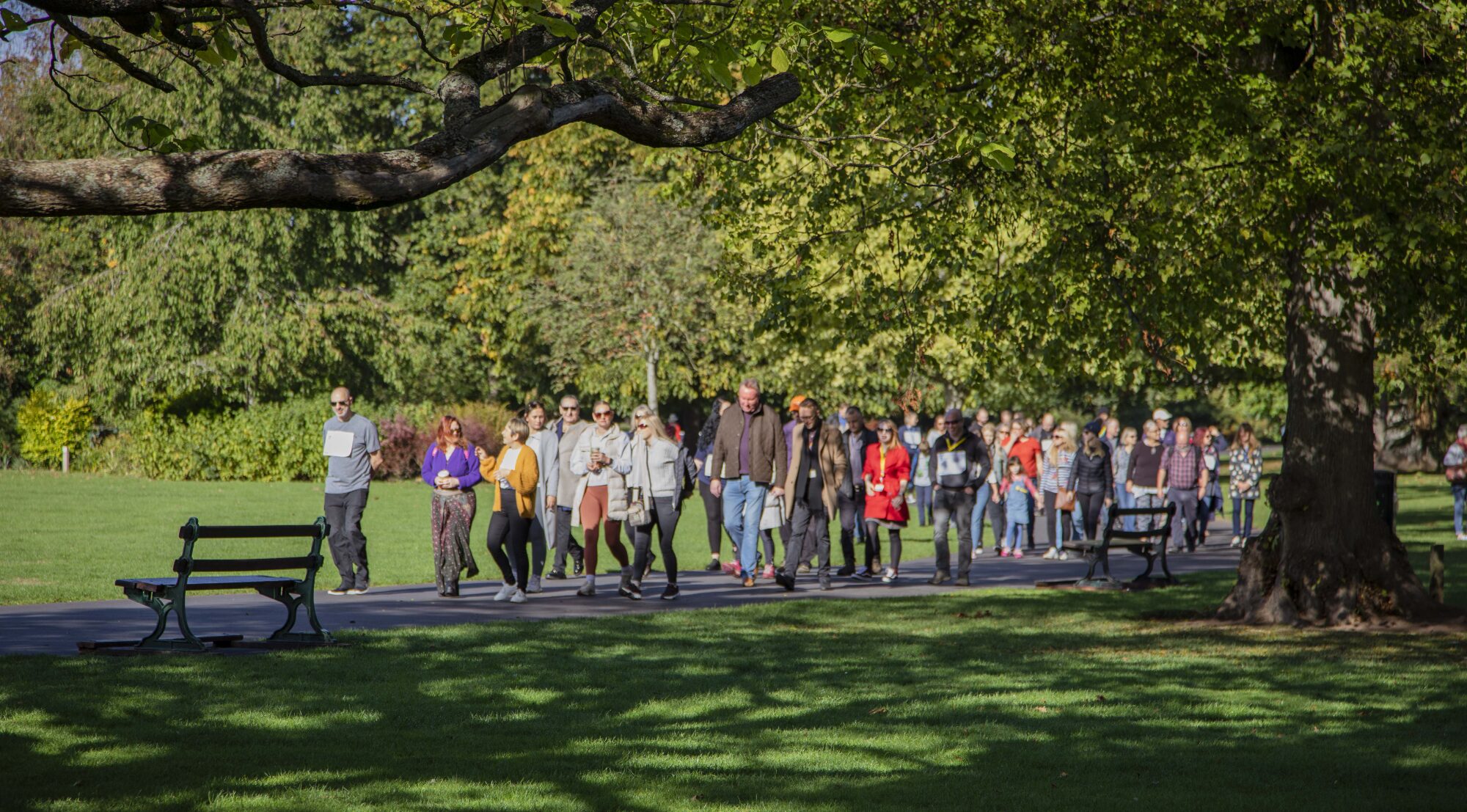
Wednesday, September 10th, is World Suicide Prevention Day. This year’s theme, set by the World Health Organisation, is Changing the narrative on suicide through open, compassionate conversations that help reduce stigma and build supportive communities.
Walk for a Life in Taunton on Saturday, 6th September, is a great example of how we can support each other and create opportunities for more open conversations.
To change the narrative, we need to be willing to talk about suicide with compassion and without judgment. We know these conversations aren’t easy, so we’ve put together some guidance to help you, drawn from our webpage Understanding Suicide, a resource created in collaboration with our colleagues in the NHS:
How to Talk About Suicide
The best way to support someone is to ask them directly how they’re feeling. You can ask clearly and neutrally, “Are you having thoughts of suicide?” Asking directly is the safest approach and can open the door for them to share how they are feeling. You can also start with a gentler approach, saying something like, “It sounds like things have been quite difficult recently. In such challenging situations, many people will have thoughts of ending their lives. Can you tell me, is this something you’re experiencing?”
Be respectful and non-judgmental. Don’t deny what they’re telling you or pretend you know how they feel. Instead, keep the conversation going with open-ended questions like, “How has that impacted you?”
How to Respond and Support
When someone shares their thoughts with you, your role isn’t to “fix” the situation. Your main job is to listen, validate their experience, and show them they are not alone. Phrases like “I can’t imagine how painful this is for you, but I would like to try and understand” can be very powerful.
After listening, you can try to understand their situation a bit more by asking if they have a plan or have thought about ways to end their life. This information will help you understand the next steps you should take. If they are in immediate danger, call for support by dialling 999 and stay with them.
Safety and Support
You can also support them by talking through steps they can take to stay safe, like making a safety plan, and helping them access additional help from a doctor, health professional, or Open Mental Health. You or they can call 24/7 Mindline Somerset anytime of the day or night (see the telephone numbers below). Mindline is a confidential listening service offering a safe place to talk if you, or someone you know, is struggling with mental health difficulties. As well as listening, the call handlers can give you information about local services, refer you to Open Mental Health, or explain other ways to get help.
Mindline can also arrange Crisis Safe Space appointments for people struggling with their mental health. It’s an out-of-hours service where you can talk one-to-one with a member of the Crisis Safe Space team who will listen and help. Sessions are held face-to-face or virtually, depending on the availability and location. You can also book a Crisis Safe Space appointment directly on our website—just visit the page linked above and click the blue button that says “Book Crisis Safe Space Now.”
To learn more about the Crisis Safe Space service, watch this animation.
Open Mental: Working for Wellbeing and Suicide Prevention
Figures from the Office for National Statistics (ONS) for 2023 show that 7,055 deaths were registered as suicide. Men accounted for about three-quarters of these deaths. While the number of male suicides varies from year to year, men are around three times more likely to die by suicide than women. In 2023, the suicide rate for males in England and Wales was 17.4 deaths per 100,000, compared to a female rate of 5.7 per 100,000. The highest suicide rate among men was in the 45-49 age group.
The OMH project Unbreakable Men works to raise awareness of men’s mental health in Somerset and encourages men to take charge of their mental and physical wellbeing through physical activities and online resources. The project offers a Mental Health MOT Quiz and an app. The quiz is a simple way for men to check in on their current mental wellbeing and see where they might benefit from additional support.
Mental Health Support for Young People in Somerset
Open Mental Health partner SASP runs a Suicide Prevention Project that supports young adults aged 16 to 25 in Somerset. It’s a safe and supportive program for young people who are or have been at risk of self-harm and suicide, designed to help them talk openly about their feelings, connect with others, and find new ways to manage their mental health.
Wellbeing Mentors with lived experience of mental health challenges are available to guide young people, using their own journeys to provide support and reassurance. Through shared experiences and physical activity, they help to improve mental wellbeing, build social connections, and boost self-esteem, with the goal of helping young people feel more hopeful about their future.
Suicide Prevention: Getting the Right Support at the Right Time
To learn more about how easy it is to access Open Mental Health, read How You Can Self-Refer to our Services. We offer support 24 hours a day, seven days a week, to ensure that help is available for people struggling with their mental health in Somerset.
Please call our team at Mindline Somerset any time of the day or night, locally on 01823 276892 or freephone 0800 138 1692. Alternatively, Mindline Live Web Chat is available via our website every day from 8 pm to 11 pm, or you can send us a message.